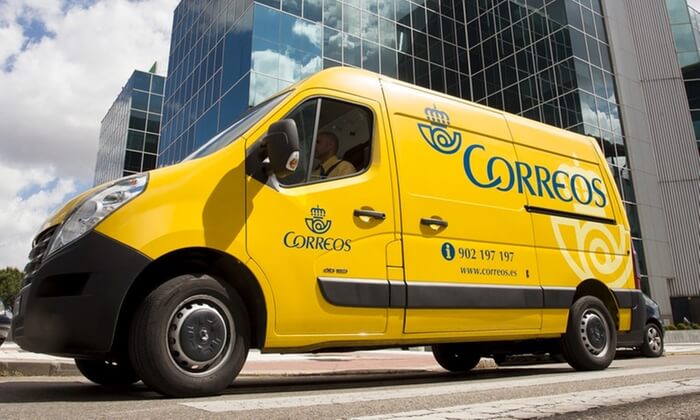

With the World Climate Summit in Madrid in full swing, member nations are stepping up their pledges to offset their carbon footprints.
However, with more than half the population of Spain breathing in polluted air, this Mediterranean country is hardly at the forefront of fighting climate change.
Now, Correos España (the national postal service) is stepping up to the plate.
The Correos y Telégrafos de España State Society, commonly known as Correos, announced during the Summit that it will use a blockchain to offset its carbon footprint created by its shipping and postal services.
The move came about thanks to an agreement between Correos and the Climate Blockchain Initiative, creator of ClimateTrade.
ClimateTrade is a blockchain that issues the Climatecoin token to compensate its clients’ carbon footprint.
The tokens generated by Correos will go to Acciona, a Spanish environmental company that manages multiple carbon dioxide (CO2) emission reduction projects.
Through ClimateTrade, environmental mitigation projects register and sell their credits to polluting companies to offset their carbon emissions.
This means that every time a company sends any merchandise or packaging through Correos, the national postal service compensates it with contributions to environmental projects registered in the ClimateTrade blockchain.
Francisco Benedito, CEO of ClimateTrade, stated that among the advantages of using a blockchain for this type of initiative is the ability to track the funds with greater transparency.
He added that prior to the introduction of blockchain tech, previously used carbon credits “could be resold”. This meant that projects combatting climate change often did not receive the necessary funds and new initiatives were cut.
Blockchain technology provides the guarantee that funds are correctly channelled into the right projects.
The Correos agreement is not the only new initiative to use blockchain to mitigate corporations’ environmental impact. Other Spanish companies such as energy start-up Greenb2e also have tokenisation projects for the use of renewable energy. In particular, this project seeks to promote ecological practices for companies.
Another Spanish project launched December this year has the backing of Spain’s largest department store chain El Corte Inglés, in partnership with the Energías de Portugal (EDP) group. Through this project, both entities will certify the use of renewable energy in El Corte Inglés stores, starting with a pilot in the towns of Malaga, Seville, and Cádiz.
This is also not Spain’s only pledge to incorporate emerging technology into its infrastructure. In July 2018, more than 130 deputies of Spain’s Popular Party drafted a bill proposing the implementation of blockchain technology to make government administration more transparent and efficient.
Denver, Colorado, 24th February 2025, Chainwire
Denver, Colorado, 20th February 2025, Chainwire
Washington, D.C., 18th February 2025, Chainwire
Dubai, UAE, 27th January 2025, Chainwire
Those who enter the market at this time may be surprised to hear that Bitcoin…
George Town, Grand Cayman, 22nd November 2024, Chainwire